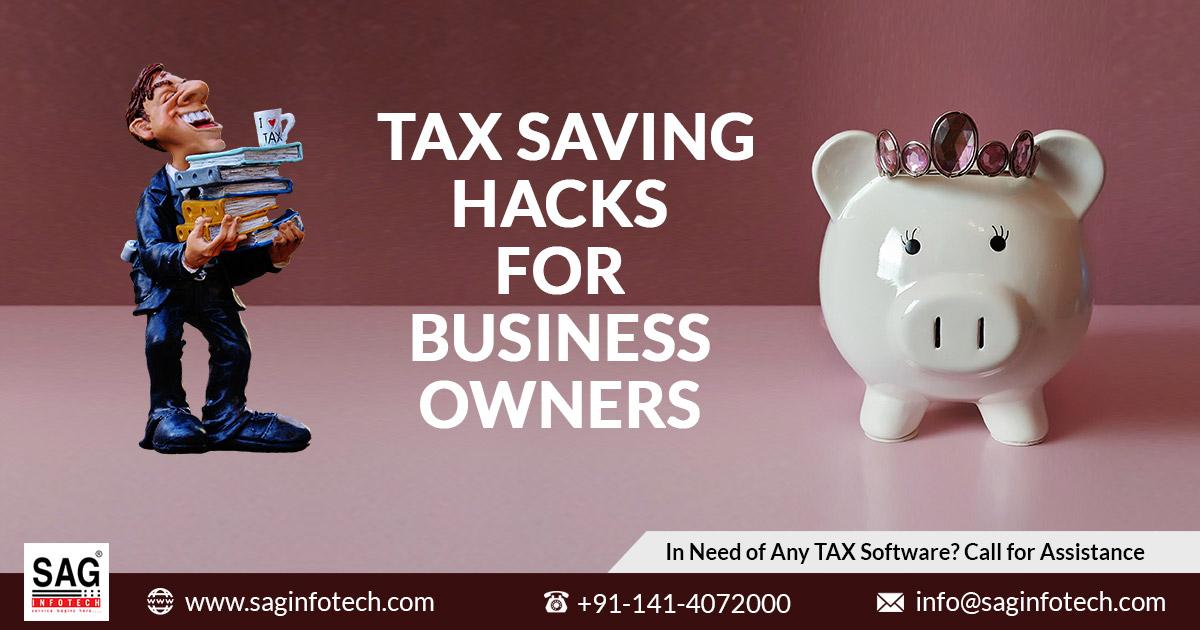Nowadays, almost every youth thinks of their own business, which offers them not only with the owner but also an overall control over the generated revenue. Whenever two or three people with similar ideas and objectives come together and decide to work towards making their dreams come true, the born of a startup takes place.
Initially, self-employed professionals priorities set up and running a business effectively. However, at that time, they missed out on very important things that can come up as an obstacle while obtaining revenue threshold they have set earlier for the business to generate. A lot of business owners even of a startup or a well-established private limited company, several times fail to consider investment and tax planning properly.
With this blog, we desire to make such self-employed professionals more aware of investing money and saving taxes as well. Here we are providing 10 best saving tips for startup and business owners which will assist them in bringing down their tax liabilities.
Start-up Expenses
A new entity or startup may include these expenses among the preliminary expenses. These are the expenses that a company or startup makes before the starting of the business and these expenses can be deducted from the taxable income under Section 35D of the Income Tax Act, 1961. Also, the law directs the deduction of such expenses equally over a period of 5 years and not all at once as a lump sum amount.
Paid Rent Expense of Office Premises
While starting a startup, many entrepreneurs opt for a home office or a work from home policy or by renting office premises. Here, they can consider the rent paid for their residence as a business expense under the Indian Income Tax Regulations. If in case, you have owned the office premises and pay property tax on it then you can deduct the rent amount from the taxable income of your business.
Salary of Hired Family Member:
It is one of the best and most used ways to reduce the tax liabilities of a business. Hiring a family member and pay him with an amount of INR 2 lakh per year as salary, the amount paid to the relative won't be considered for tax as an expense for the company. The company can deduct this amount from the taxable income of the business. Consequently, the total tax liability of the company will automatically be reduced.
Hotel/Travel Expenses:
As the face of the company, you have to travel to several places for business meetings or networking at events with other business owners and potential investors as well. For some events, you have to stay in a city for a few days for which you will check into a hotel for accommodation. As an entrepreneur, you need to manage the account for such expenses. Always remember to keep dining, taxi receipts along with the traveling rate if you are flying abroad. Writing off these expenses will make you save a good amount of money from your tax liabilities.
Medical Insurance:
Under Section 80D of the Income Tax Act, an entrepreneur can claim an insurance premium of up to 15,000 for tax deductions. He can take this insurance for anyone in his family including himself, whether for the spouse, dependent children or dependent parents. However, for claiming a deduction through medical insurance there is a condition that the startup should be your first job and you are not working full-time under any employer providing you with medical insurance.
Depreciation:
It is one of the best methods for any business to save tax. One can opt for claiming depreciation if all the capital expenses for business are made under the name of the company. Likewise, purchase of a car, computer, furniture, mobile phones, etc. under the companyÂ’s name. The Income Tax Act, 1961 allows a company for claiming depreciation on the expenses made to purchase assets at different prescribed rates.
Utility Expenses
The expenses made on utilities such as electricity, water, internet, and telecom have a big share of your expenses. These expenses can be considered as business expenses and write-offs accordingly. In addition to this, Any expenses made on the purchase of any equipment can also be included as write off under depreciation banner.
Charitable Donations:
While starting a business, you may think of cutting down on the amount you going to donate in charity. However, it is advisable that doing charity gives you a tax break. But a condition implies it, the organization you are going to donate fall under section 80G of the I-T Act for such deduction. Also, remember to take a duly stamped receipt of the made donation to charity.
Education:
If you have taken an education loan and its payment is in the process. There are chances that you may reconsider it as an expense. In case you have an educational loan for children, this can also contemplate as an expense. Also, you will be benefited from a deduction of up to two children for their full-time education under Section 80C.
File your tax returns on time:
According to the Income Tax Department, if the taxpayers file income tax returns via Gen IT software on time they will be able to avail several benefits. One of them is the carry forward of losses on the income earned from the business. The business income losses can be carry forwarded for consecutive 8 years. So one can settle losses against the income earned in the coming years if it cannot be adjusted in the ongoing year. One can get benefited from options only when he files his tax returns on or before the Income-tax filing due date.













No Comments